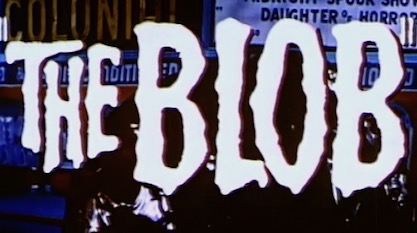 Evolution
Evolution
From Darwin’s Rhapsody, to The Blob


Paul Nelson made an excellent point earlier today, noting that Darwin’s theory was conceived as a sort of romantic, rhapsodic vision. The science came later. He concludes:
We need to take seriously the probability that “evolution” mostly means “no detectable design.” If that’s so, then it may be a fool’s errand to try to test “evolution.” One cannot overturn a metaphysical commitment by evidence, because that commitment wasn’t arrived at via evidence.
Someone could respond that whatever the circumstances of its conception, evolution is now to be embraced as a fully supported, indeed irrefutable scientific fact. A friend, however, commends this passage from biologist Wayne Rossiter’s book Shadow of Oz for its delightful analogy characterizing evolutionary theory not in Darwin’s hands but today. Rossiter draws an apt comparison to a classic sci-fi/horror film.
As it stands now, evolutionary theory attempts to represent stasis (non-change), devolution (loss of complexity or form), gradual change, and geologically sudden massive change, all at the same time. To date, no rendering of Darwin’s theory serves as a law by which any one of these outcomes can be expected or predicted. What good is a theory if it cannot predict outcomes or explain history?…
This situation reminds me of that classic science fiction film, The Blob (1958). In the movie, Earth is visited by a somewhat unexpected alien guest. The alien life form is a mindless jelly that continually grows as it absorbs everything it touches. There is seemingly no way to combat the creature, as bullets, missiles and bombs are simply absorbed into the ever-growing monster. In many ways, this is what the theory of evolution has become. The pattern may be discernible, but the process escapes us. The number of one-off unique scenarios are as endless as the variety of explanations Darwin’s theory engenders. All of them are held true within a massive blob that is modern evolutionary theory. That the ideas often contradict or logically exclude one another is apparently not a problem. Karl Popper was right when he observed that, “every ‘good’ scientific theory is a prohibition: it forbids certain things to happen. The more a theory forbids, the better it is. A theory which is not refutable by any conceivable event is non-scientific. Irrefutability is not a virtue of a theory (as people often think) but a vice.” If nothing else, the neo-Darwinian theory of evolution is clearly like no other universal metatheory. It is far too complex, convoluted, and incoherent to be awarded such a status.
That is perfect. We’ve recommended Dr. Rossiter’s book in the past as “one of the most comprehensive books critiquing theistic evolution to date,” and I take the opportunity to do so again.
Image: From the trailer for The Blob (screenshot), by Paramount Pictures [Public domain], via Wikimedia Commons.
